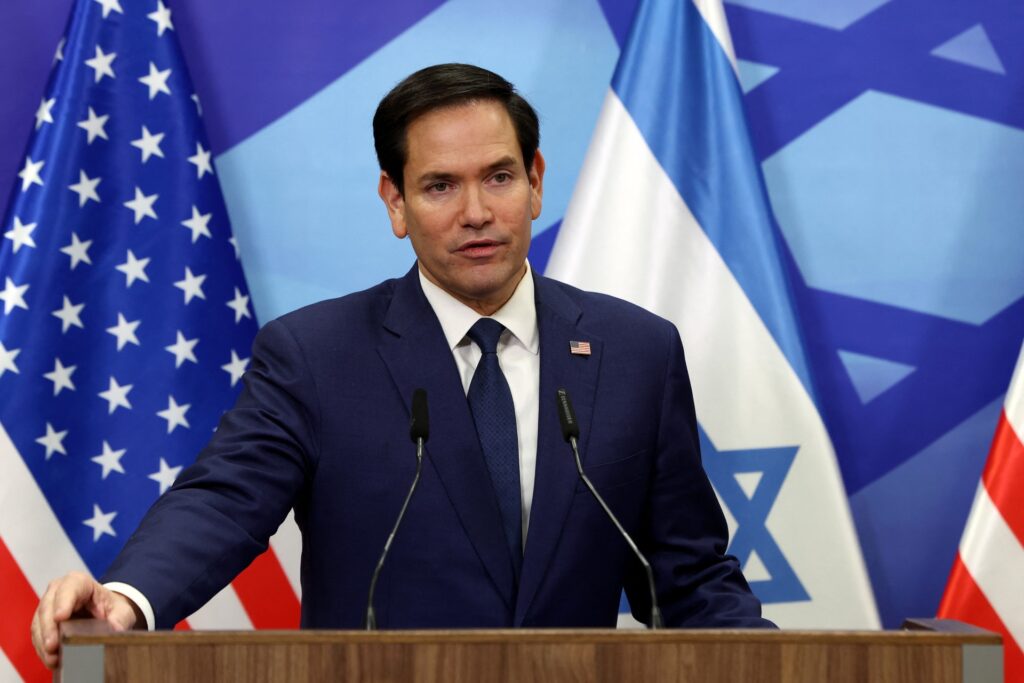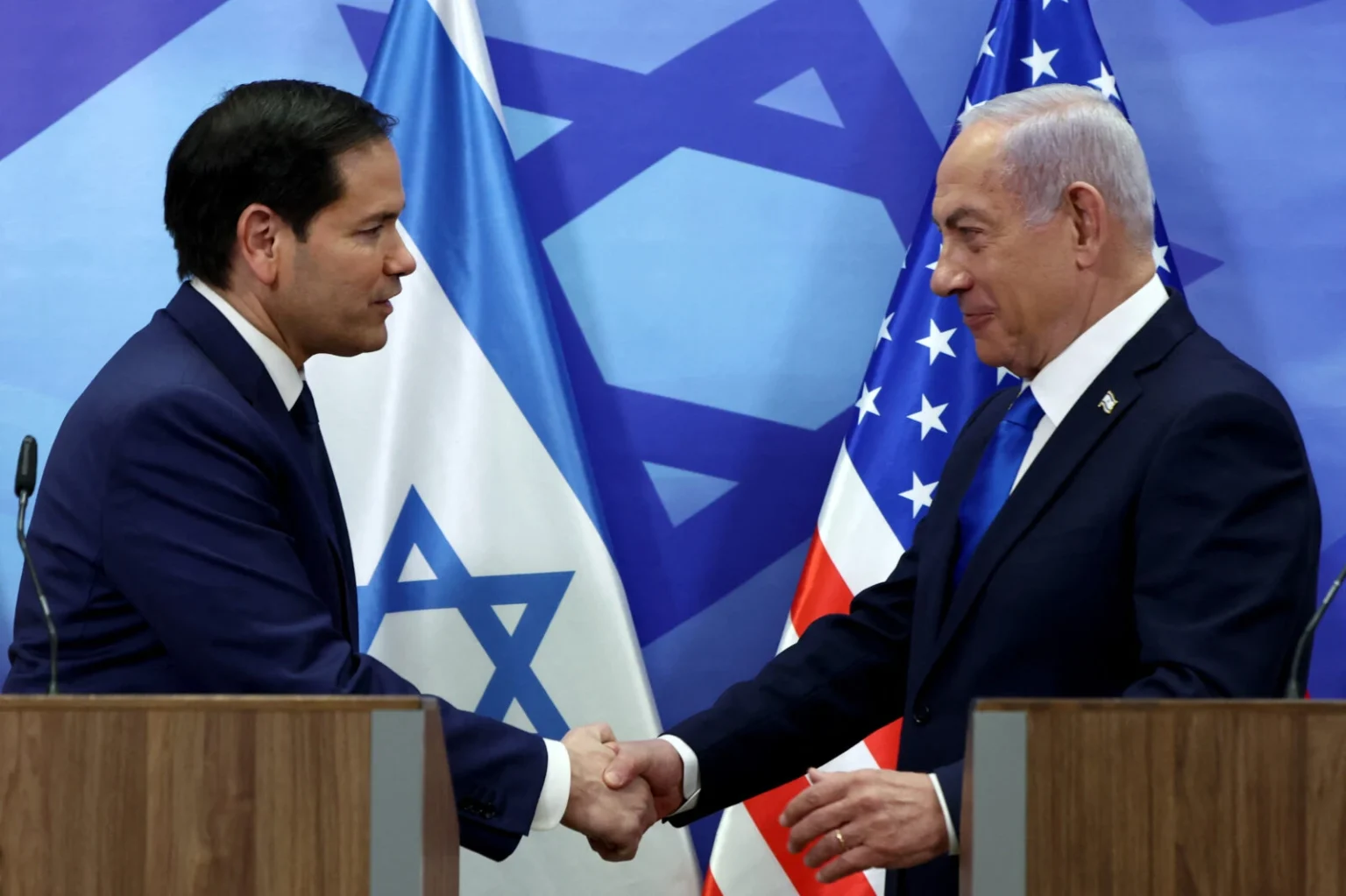U.S. Secretary of State Marco Rubio’s high-profile diplomatic tour to Saudi Arabia, Qatar, and Türkiye has signaled a powerful resurgence Global Cooperation of American leadership in the Middle East. Taking place from May 11 to May 14, 2025, the mission was not just symbolic—it was a direct move toward strengthening alliances, enhancing economic ties, and addressing pressing security concerns with key regional partners. Rubio accompanied President Donald Trump during the visit, participating in bilateral meetings, economic announcements, and multilateral discussions that could reshape the geopolitical dynamics of the region.
This trip, which took place amid shifting global priorities, comes at a time when the world is re-evaluating long-standing partnerships. Rubio’s approach was direct yet collaborative—centered on mutual respect, economic opportunity, and the shared goal of stability. Across each stop, from the power corridors of Riyadh to the bustling skyline of Doha and the historic landscape of Antalya, the message was consistent: the United States is back, invested, and looking ahead.
Strengthening Ties with Saudi Arabia: Vision Meets Investment

In Riyadh, Secretary Rubio held extensive talks with Saudi Crown Prince Mohammed bin Salman. While many anticipated discussions on defense and oil, the outcome far exceeded expectations. A new $142 billion defense agreement was finalized, indicating a continued commitment to regional security. More striking, however, was the unveiling of $600 billion in planned Saudi investments into the U.S. over the next decade, touching sectors ranging from AI and renewable energy to infrastructure and healthcare innovation.
The tone of the meetings reflected not just mutual benefit but a recognition of interdependence. As Saudi Arabia aggressively pursues its Vision 2030—aimed at reducing reliance on oil—Rubio emphasized the role the U.S. can play in supporting technological transformation and entrepreneurship in the kingdom.
Importantly, the conversations also delved into regional stability. Topics such as counterterrorism, Iran’s expanding influence, and Yemen’s fragile peace process were central to the private sessions. Rubio advocated for cooperation rooted in accountability and shared responsibility.
Qatar: Defense, Diplomacy, and Development
From Riyadh, the delegation proceeded to Doha, where Rubio was received by Qatari officials eager to deepen bilateral ties. Qatar has long been a strategic partner for the U.S., hosting the Al Udeid Air Base and playing a key role in regional mediation efforts. But this visit placed new emphasis on economic engagement.
One of the biggest commercial wins came in the aviation sector. Qatar Airways finalized a multi-billion-dollar deal with Boeing to acquire 160 state-of-the-art aircraft, positioning itself as a leader in sustainable aviation growth. This development promises to create tens of thousands of jobs across American manufacturing plants while expanding Qatar’s global footprint.
Defense cooperation was another highlight. Qatar reaffirmed its commitment to joint counterterrorism programs and intelligence sharing. Rubio expressed appreciation for Doha’s role in de-escalating recent tensions in Gaza, noting the country’s growing importance as a diplomatic broker in volatile situations.
There was also a focus on youth development and education. In a roundtable discussion with Qatari university students, Rubio discussed the importance of cultural exchange, innovation, and preparing the next generation for the global economy. These softer diplomatic engagements added a human element to the broader strategic goals.
Türkiye: NATO and Regional Stability in Focus
In Antalya, Rubio took part in the NATO Informal Foreign Ministers Meeting, where defense investment and European security topped the agenda. As tensions between Russia and Ukraine continue to dominate headlines, the role of NATO has never been more critical. Rubio pushed for increased contributions from member nations, stressing that collective defense must be met with collective responsibility.
During bilateral discussions with Turkish Foreign Minister Hakan Fidan, the conversation turned to the Eastern Mediterranean, refugee management, and energy corridors. Türkiye’s geographic location makes it a key player in managing the flow of energy and people between Europe and Asia. Rubio acknowledged Türkiye’s crucial efforts in stabilizing northern Syria and underscored the U.S.’s commitment to humanitarian assistance and infrastructure rebuilding in the war-torn region.
Beyond security, there was optimism about re-energizing U.S.-Türkiye trade relations. Rubio highlighted the potential for cooperation in energy infrastructure, emphasizing Türkiye’s growing role as a natural gas hub between East and West. He also expressed support for joint initiatives that would boost green energy technologies and encourage U.S. investments in Türkiye’s expanding tech sector.
A New Chapter in U.S. Foreign Policy
Throughout the tour, Secretary Rubio demonstrated not just diplomatic skill but a clear strategic vision. His approach was proactive, pragmatic, and rooted in long-term planning. This wasn’t about transactional diplomacy; it was about building frameworks that endure.
The tour addressed multiple priorities—defense, investment, innovation, and cultural ties—while reaffirming America’s status as a reliable partner. In an era where trust between nations is often fragile, Rubio’s mission helped restore confidence, reminding allies that the U.S. remains a force for stability and growth.
While critics may view the visit through a political lens, the outcomes speak for themselves. Billions in investments, expanded defense agreements, and fresh channels of communication—all achieved in just four days—highlight the effectiveness of clear, focused diplomacy.
Looking Ahead
As Secretary Rubio returns to Washington, the work continues. Implementation of agreements, follow-up on investment pipelines, and ongoing security collaboration will shape the coming months. Yet the tone has been set. The Middle East has long been a region of complexity and contradiction, but through thoughtful engagement and mutual respect, progress is possible.
For the countries visited—Saudi Arabia, Qatar, and Türkiye—the visit served as validation. For the United States, it was a reaffirmation of purpose. And for Secretary Rubio, it may well mark the beginning of a new chapter in American diplomacy: one driven not just by policy, but by partnership.
This trip may not solve every challenge, but it planted the seeds of possibility—seeds that, with care and commitment, could blossom into a new era of cooperation, peace, and prosperity across the region.
Australia Crushes Kuwait 4-0 in Dominant Asian Cup Qualifiers Victory



